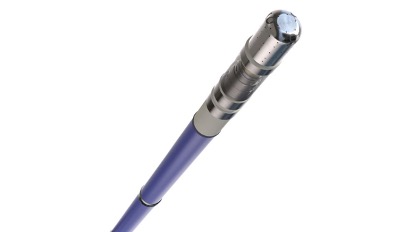J&J links radiofrequency catheter to improved quality of life in atrial fibrillation study
November 9, 2023
Source: drugdu
 420
420

Dive Brief
Johnson & Johnson has linked its Qdot Micro radiofrequency (RF) catheter to improved quality of life in patients with paroxysmal atrial fibrillation (AFib).
The single-arm study found that, compared to baseline, scores on an AFib quality-of-life scale improved and use of antiarrhythmic drugs fell after people underwent treatment with the device.
Qdot Micro, which received approval in the U.S. in 2022, is set to face competition from pulsed field ablation (PFA) devices. A Boston Scientific study suggests PFA and thermal ablation result in similar levels of improvement in quality of life.
Dive Insight
Qdot Micro is temperature-controlled, contact force-sensing, RF catheter. The temperature control feature supports the use of higher radiofrequency power in short bursts, an approach that J&J sees as a way to improve efficacy without compromising safety. J&J published 12-month data on the effectiveness of the device in its Q-FFICIENCY study earlier this year.
The latest update, which was published in the Journal of Cardiovascular Electrophysiology, covers more data from the Q-FFICIENCY trial.
J&J subsidiary Biosense Webster supported the study.
“These findings highlight the advantage of treatment with the Qdot Micro Catheter in patients with paroxysmal AFib, demonstrating that patients have fewer symptoms and a significant improvement in their quality of life along with a low incidence of cardioversion and hospitalizations following temperature-controlled RF ablation treatment,” Ayman Hussein, the study’s corresponding author and director of cardiac electrophysiological outcomes research and of the center for atrial fibrillation at Cleveland Clinic, said in a statement.
In the study, J&J tracked a 79.9% reduction in the use of antiarrhythmic drugs in the six to 12 months after treatment, as well as a significant improvement in scores on the Atrial Fibrillation Effect on Quality-of-Life Tool (AFEQT) after 12 months. Most patients reported at least a five-point improvement on AFEQT, the threshold for a clinically meaningful change, after three months.
The study gives J&J additional data to cite as it works to grow sales of Qdot Micro.
The anticipated approval of PFA devices, including J&J’s own technologies, could increase competition. The change in mean AFEQT scores in Q-FFICIENCY was in line with the results of Boston Scientific and Medtronic’s PFA studies, although the new pulsed technology has other advantages that could help it win market share.
Source:
https://www.news-medical.net/news/20231107/Novel-and-emerging-therapies-offer-new-hope-for-patients-with-inflammatory-bowel-disease.aspx
Read more on
- The first subject has been dosed in the Phase I clinical trial of Yuandong Bio’s EP-0210 monoclonal antibody injection. February 10, 2026
- Clinical trial of recombinant herpes zoster ZFA01 adjuvant vaccine (CHO cells) approved February 10, 2026
- Heyu Pharmaceuticals’ FGFR4 inhibitor ipagoglottinib has received Fast Track designation from the FDA for the treatment of advanced HCC patients with FGF19 overexpression who have been treated with ICIs and mTKIs. February 10, 2026
- Sanofi’s “Rilzabrutinib” has been recognized as a Breakthrough Therapy in the United States and an Orphan Drug in Japan, and has applied for marketing approval in China. February 10, 2026
- Domestically developed blockbuster ADC approved for new indication February 10, 2026
your submission has already been received.
OK
Subscribe
Please enter a valid Email address!
Submit
The most relevant industry news & insight will be sent to you every two weeks.



